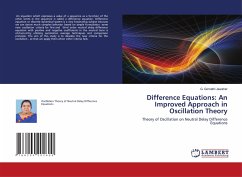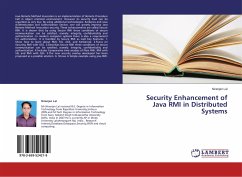
Theory of Resource Allocation for Robust Distributed Computing
An Age-dependent Regeneration Approach
Versandkostenfrei!
Versandfertig in 6-10 Tagen
39,99 €
inkl. MwSt.

PAYBACK Punkte
20 °P sammeln!
Lately, distributed computing (DC) has emerged in several application scenarios such as grid computing, high-performance and reconfigurable computing,wireless sensor networks, peer-to-peer networks,and donation grids. When DC is performed in these scenarios, the distributed computing system (DCS) supporting the applications not only exhibits heterogeneous computing resources and a significant communication latency, but also becomes highly dynamic due to the communication network as well as the computing servers are affected by a wide class of anomalies that change the topology of the system in...
Lately, distributed computing (DC) has emerged in several application scenarios such as grid computing, high-performance and reconfigurable computing,wireless sensor networks, peer-to-peer networks,and donation grids. When DC is performed in these scenarios, the distributed computing system (DCS) supporting the applications not only exhibits heterogeneous computing resources and a significant communication latency, but also becomes highly dynamic due to the communication network as well as the computing servers are affected by a wide class of anomalies that change the topology of the system in a random fashion. These anomalies exhibit spatial and/ortemporal correlation, may inflict a large amount of damage to the system, and induce further failures in other servers. In order to provide a robust DC environment in the presence of component failures, it is key to develop a general framework for accuratelymodeling the complex dynamics of a DCS. In this book a general probabilistic approach has been undertaken for modeling and characterizing the performance and reliability of a general class of DCSs.












